Why M&A Dealmakers Need Secure Virtual Data Rooms
The recent news about federal employees accidentally sharing sensitive White House blueprints with thousands of government workers is a shocking reminder of how easily things can go wrong when document security isn't handled properly.
While this breach involves national security, the takeaway for M&A professionals is just as important—especially when you're dealing with sensitive information during high-stakes transactions.
A Wake-Up Call for M&A Professionals
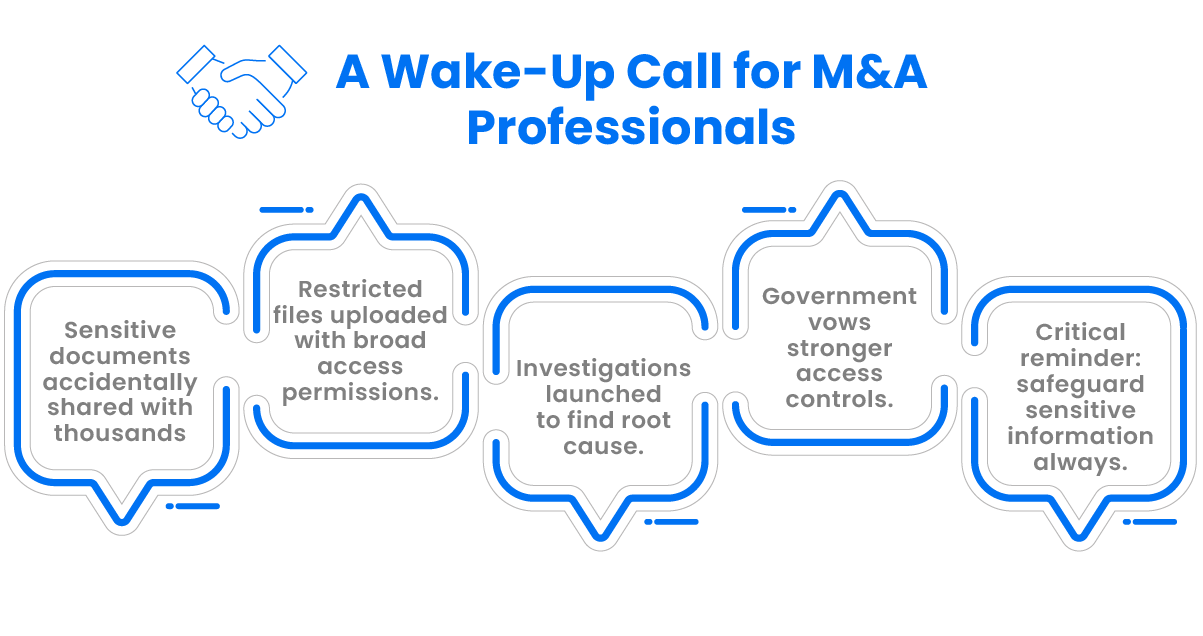
Imagine this: key federal documents, including some that were supposed to stay within a small circle of people, end up in the hands of thousands.
The article from The Guardian highlights a security breach in which U.S. federal employees accidentally shared highly sensitive documents, including White House blueprints, with thousands of workers across the federal government. These documents were intended for a limited group of individuals but were mistakenly uploaded to a platform with broader access, exposing classified materials to unauthorized parties.
This breach has prompted investigations and audits to understand the cause of the error and improve security protocols. The U.S. government has pledged to enhance its document-sharing practices and access controls to prevent similar incidents in the future.
The breach underscores the risks of mishandling sensitive data, even with trusted platforms, and stresses the importance of robust security measures and strict access control—lessons that are also crucial in the M&A space, where similar risks exist with sensitive deal documents.
What About You?
If something like this can happen in the federal government, what's stopping a similar mistake from happening in your M&A deals?
When you're working on M&A transactions, the stakes are just as high. It's not classified blueprints you're worried about, but your company's confidential financial data, intellectual property, and transaction details. If these documents fall into the wrong hands, the consequences could be disastrous. What's worse, once that trust is lost, it's incredibly hard to regain.
The Fallout of a Data Leak in M&A
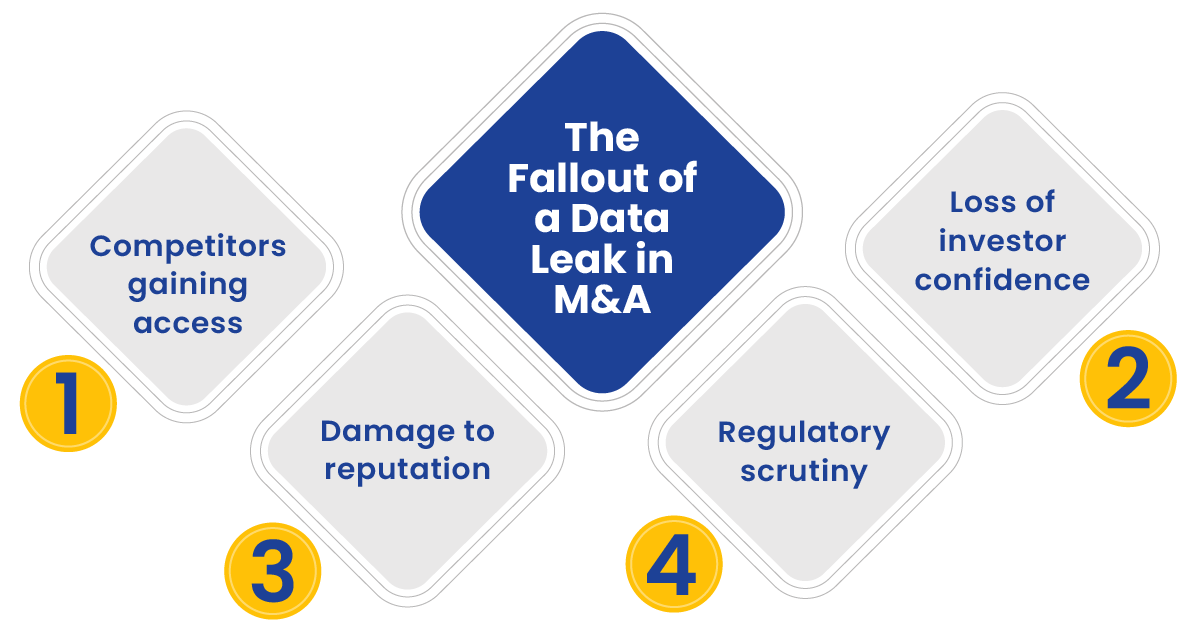
So, what's at risk if something similar happens during an M&A deal? Think about it:
- Competitors gaining access: If confidential documents are leaked to a competitor, it could give them an unfair advantage during negotiations or post-merger integration.
- Loss of investor confidence: Investors could pull out of a deal if they feel their access to sensitive data was compromised.
- Damage to reputation: Even a small data breach can lead to significant damage to your company's reputation, making it harder to close future deals.
- Regulatory scrutiny: Depending on the nature of the leak, regulatory bodies may get involved, leading to potential fines and compliance issues.
In the world of M&A, trust is everything. It's the foundation that your negotiations, transactions, and relationships are built on. When that trust is compromised, it can unravel everything. That's why secure document management should always be top of mind for dealmakers.
How ShareVault Protects M&A Transactions
If we take a step back and look at what happened in the federal breach, it's clear that the government didn't have the proper tools in place to ensure sensitive documents were only accessible by authorized individuals. But what if there was a solution in place to guarantee those documents stayed protected?
This is exactly where Virtual Data Rooms (VDRs) come into play for M&A professionals.
Just like the government needs secure systems to protect highly sensitive documents, M&A professionals need reliable, secure solutions to manage the flow of their deal data. ShareVault's VDR does just that.
Key Features of ShareVault VDRs:
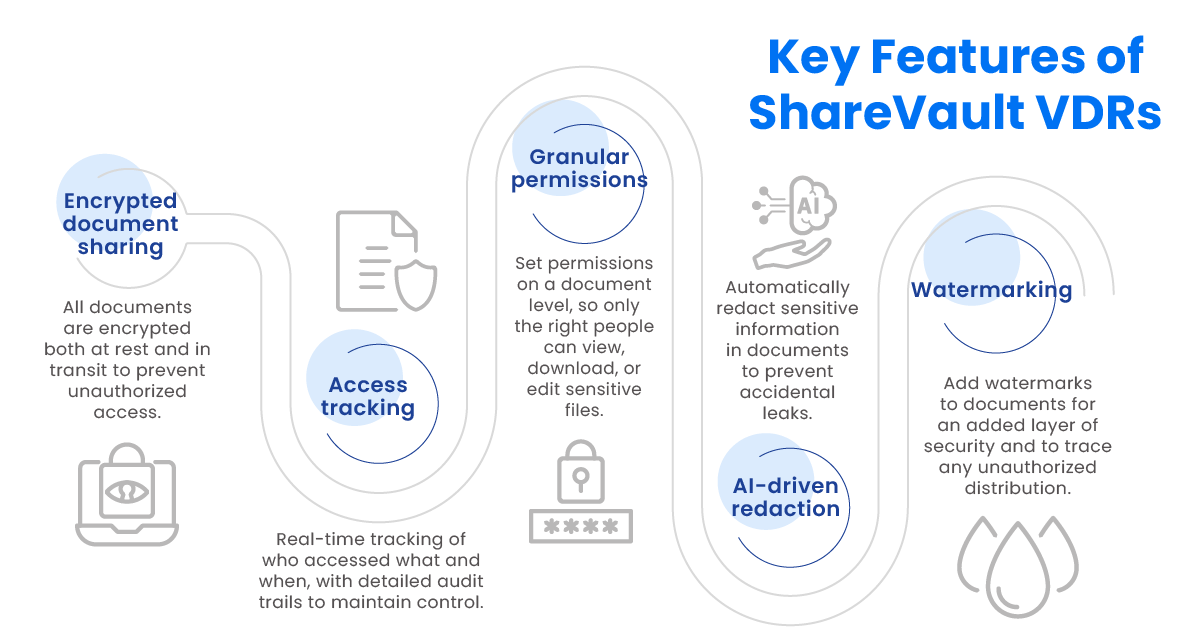
- Encrypted document sharing: All documents are encrypted both at rest and in transit to prevent unauthorized access.
- Access tracking: Real-time tracking of who accessed what and when, with detailed audit trails to maintain control.
- Granular permissions: Set permissions on a document level, so only the right people can view, download, or edit sensitive files.
- AI-driven redaction: Automatically redact sensitive information in documents to prevent accidental leaks.
- Watermarking: Add watermarks to documents for an added layer of security and to trace any unauthorized distribution.
These features ensure that the integrity of your M&A deal is protected. With ShareVault's secure environment, you'll never have to worry about an accidental leak derailing your transaction.
Best Practices for Securing M&A Documents
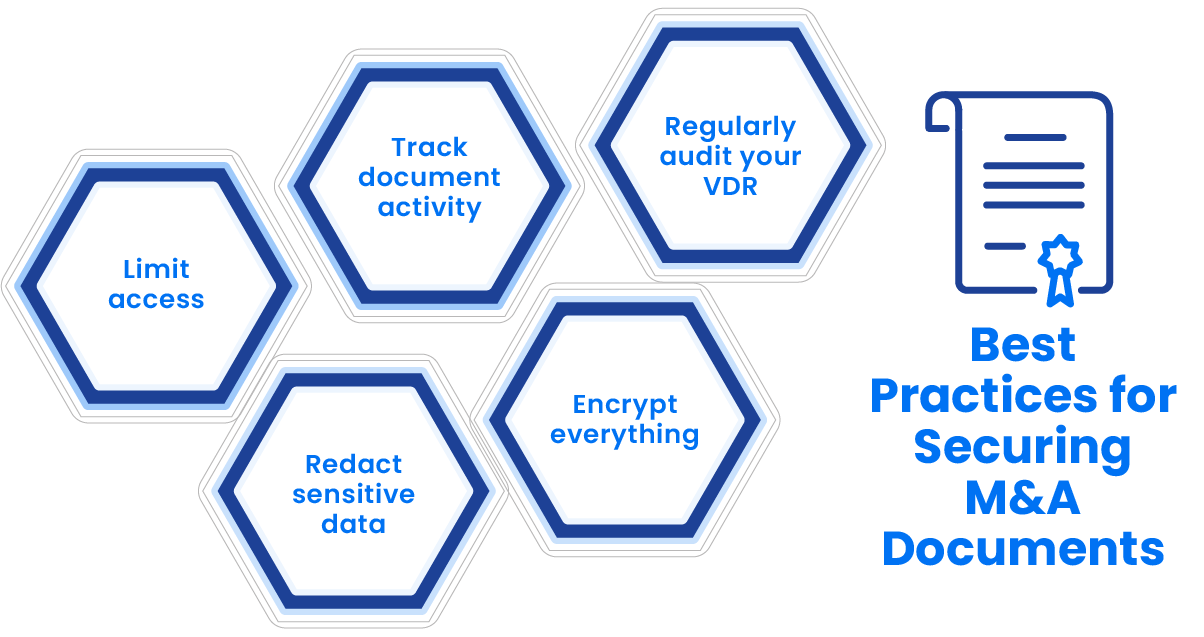
It's one thing to use a VDR, but it's another to follow best practices that help keep your data safe throughout the M&A process. Here are some steps you can take to proactively protect your sensitive documents:
- Limit access: Not everyone involved in the deal needs access to all documents. Use ShareVault's advanced permissions settings to grant access only to those who need it. This reduces the risk of a document being seen by the wrong person.
- Redact sensitive data: Before sharing certain documents, make sure to redact any confidential information that doesn't need to be shared. ShareVault offers automated redaction tools that make this process easy and error-free.
- Track document activity: Regularly review who's accessing your documents. ShareVault's real-time tracking and audit trails give you complete visibility into how your documents are being used. This allows you to spot any unusual activity before it becomes a problem.
- Encrypt everything: Ensure that all documents are encrypted, whether they're stored or being transferred. This is non-negotiable when dealing with sensitive deal data.
- Regularly audit your VDR: Just like the government conducted an IT audit after the breach, regularly auditing your VDR can ensure there are no security gaps. Periodically check who has access, what's been shared, and whether there are any vulnerabilities in the system.
What Can We Learn from the Breach?
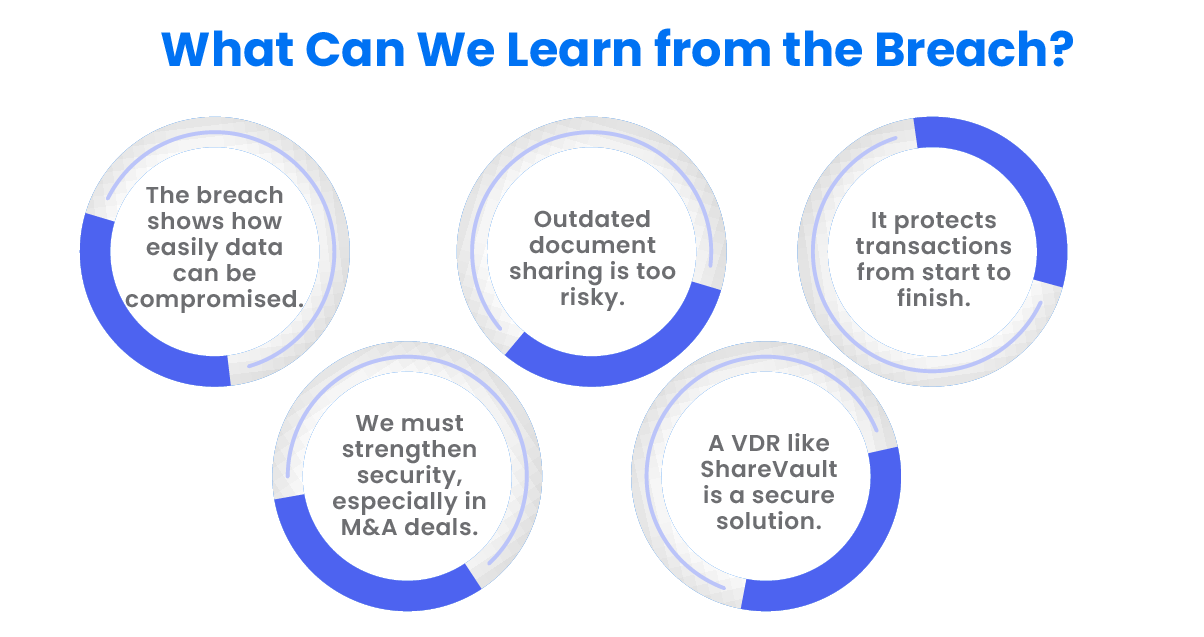
The federal breach is a strong reminder of how easily information can be compromised when proper precautions aren't in place. But the silver lining here is that we can take lessons from this incident to improve our own security measures—especially in M&A transactions. The takeaway is clear: if you want to protect your deal data, don't rely on outdated or insecure methods for document sharing. A VDR like ShareVault offers a simple, secure solution that will safeguard your transactions from start to finish.
Conclusion: Don't Leave Your Deal Data Exposed
In the federal case, the breach was a result of improper document handling. In M&A, the consequences of an unsecured document leak can be just as serious. Whether it's a loss of business, investor confidence, or regulatory penalties, the risks are high.
By using a secure VDR like ShareVault, you're ensuring that your deal data is protected, your negotiations stay confidential, and your reputation remains intact. If you're not already using a VDR for your M&A transactions, now is the time to make the switch.
Don't leave your data exposed—protect it with the right tools, and avoid the costly fallout from security breaches like the one in the headlines.
